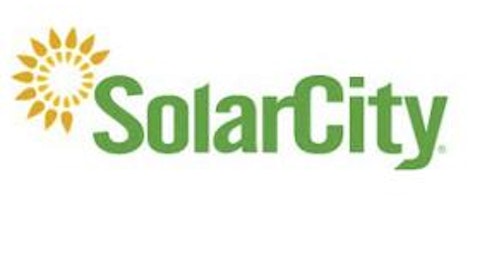That figure will scare some but it also needs some context. What we need to keep in mind with that comparison is that Germany had a feed-in tariff that paid solar installers a solar premium for over a decade. This was nothing close to net metering. As recently as 2010 the feed-in tariff rate was 39.14 euro cents per kW-hour versus 24.4 euro cents for power from the grid. That’s not exactly net metering and still the cost increase hasn’t been wildly faster than the U.S. Plus, even Arizona is years away from the level of solar adoption Germany has, and Germany’s installed base gets a rate far more attractive than net metering.
Should solar owners have to pay something for use of the grid? Maybe, because the grid does offer a service, but there are auxiliary benefits that serve the public’s best interest, such as lower fuel consumption, reduced stress on existing transmission and distribution lines, new jobs, and more. Some would argue that these factors should be weighed heavily, especially in an area where a company like APS is given a government approved monopoly. It also doesn’t help that APS is currently asking for the world instead of reasonable fees for solar owners.
What APS wants
Instead of net metering, which effectively pays solar owners $0.15-$0.16 per kW-hour for their power, APS has made two alternative proposals. The first is to pay customers $0.06-$0.10 per kW-hour for the power they generate, about in line with wholesale rates. The second proposal is to charge a fee that would reduce the average solar owner’s savings from 70% of their bill to 30%-40%. That’s no small impact for solar owners and could bring returns to such a low level that it kills residential and commercial solar immediately.
As APS’s proposal has made the rounds it has turned into a political battle. There have been commercials in Arizona about both sides of the battle. What’s changing for the solar industry is that it looks like the political winds are in solar’s favor. Consumers favor solar, and both sides of the political aisle are seeing the value of this growing industry.
What it means for investors
For investors, this is a valuable debate to watch. SolarCity and SunPower Corporation (NASDAQ:SPWR) rely on net metering to fund their residential and commercial solar installations, and a lower rate changes the returns dramatically. On the private business side, Sunrun and Clean Power Finance could be devastated by a change in net metering rules, especially if it spreads around the country. Sunrun, in particular, relies on net metering for all of its projects.
For now, net metering is under attack, but it’s still in place in most key states for solar companies. But the debate will rage on, particularly where adoption rates are the highest.
The article Utilities Fight Back Against Residential Solar Advantages originally appeared on Fool.com and is written by Travis Hoium.
Fool contributor Travis Hoium manages an account that owns shares of SunPower and personally owns shares and has the following options: long January 2015 $5 calls on SunPower, long January 2015 $7 calls on SunPower, long January 2015 $15 calls on SunPower, long January 2015 $25 calls on SunPower, and long January 2015 $40 calls on SunPower. The Motley Fool has no position in any of the stocks mentioned.
Copyright © 1995 – 2013 The Motley Fool, LLC. All rights reserved. The Motley Fool has a disclosure policy.



